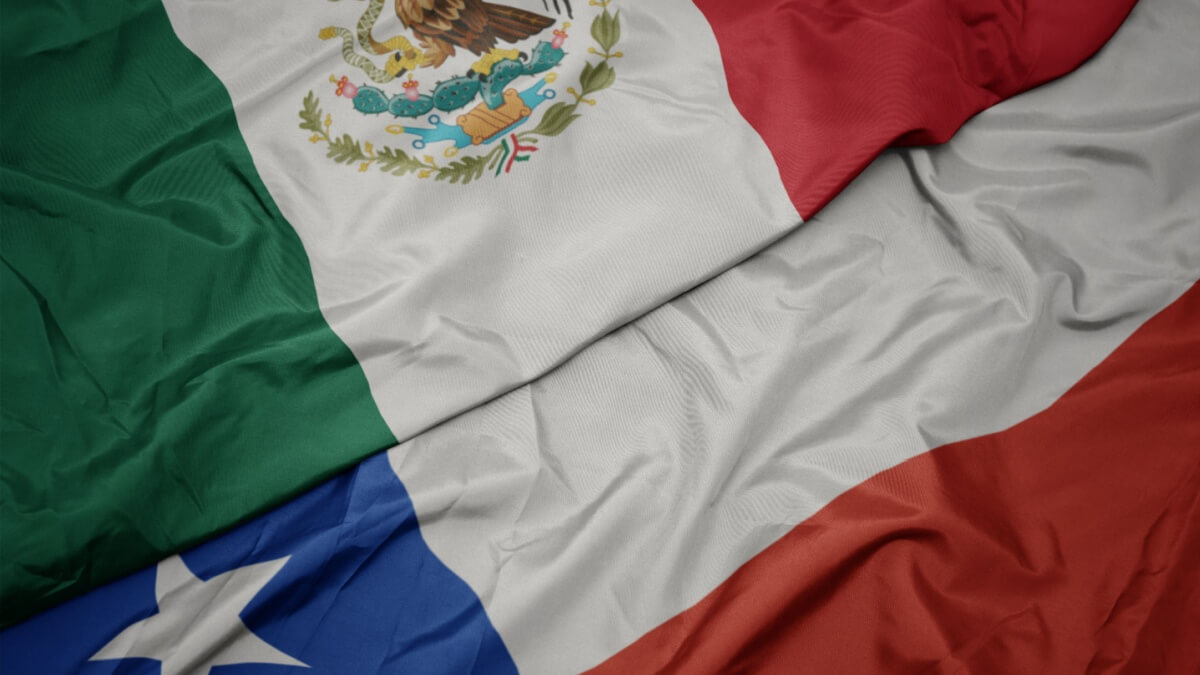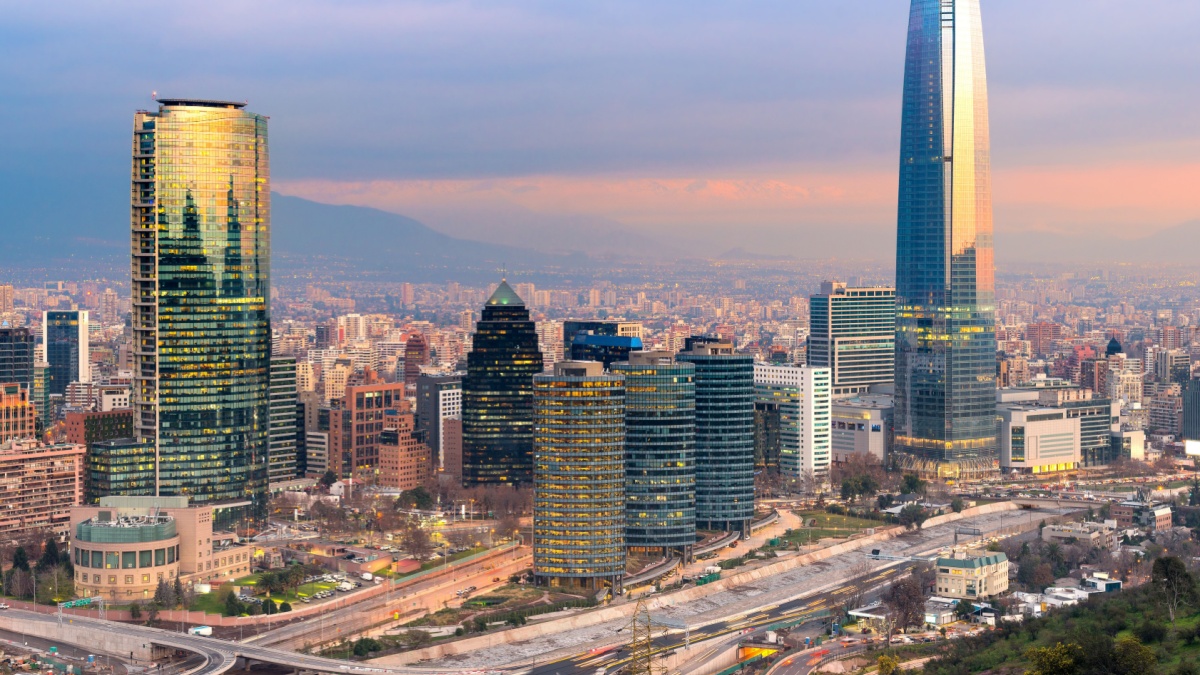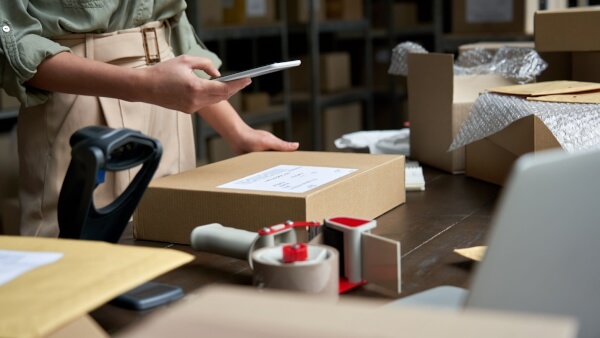Best international payroll providers in 2025
Learn about the top international payroll providers, their features, pricing, customer reviews and how to choose the right provider for your business.

Thinking of starting a business in Latin America, or expanding your UK business there?
The Latin America (LATAM) region has plenty to offer UK entrepreneurs and growing startups. However, expanding to a new foreign market will always have its challenges.
In this comprehensive guide, we’ll cover all the essentials you need to know about doing business in Latin America.
This includes the potential benefits and obstacles, tips on business etiquette and corporate culture, and a rundown of some of the most business-friendly countries in Latin America.
Research is key to success when expanding to Latin America, to understand local culture, business etiquette and regulatory requirements.
| Considerations | Description |
|---|---|
| Opportunities |
|
| Challenges |
|
| Most attractive countries for foreign entrepreneurs |
|
There are lots of reasons why UK businesses choose to expand their operations to Latin America.
This includes access to a huge customer base, proximity to other global markets such as the US, free trade agreements and access to an affordable, skilled workforce.
We’ll look at each of these benefits and opportunities in more detail below.
One of the most obvious benefits of expanding to Latin America is the sheer size of the region - and the potential this offers for reaching lucrative new customer bases.
The LATAM region has a population of around 668 million,¹ and the middle class is steadily growing year-by-year. Markets are also less saturated than in other parts of the world, so consumers tend to have fewer choices when buying products and services (especially compared to the US and Europe).²
What this means for businesses is a wider base of customers with more disposable income, and more opportunities to cater for demand for certain products and services - if you can get your offer right.
Another major advantage of starting a business in Latin America is access to its workforce, which is known to be highly skilled and multilingual - with many professionals speaking at least two languages (usually Spanish and English).
However, the demand for tech talent in particular has led to a skills gap in some areas, so you’ll need to research this carefully to make sure you’ll be able to meet your hiring needs.
While having access to a broad talent pool (depending on the city or country you’re targeting), labour costs in Latin America are also broadly affordable. It varies by region, industry and role, but tends to be lower than other parts of the world.
For example, tech salaries in LATAM tend to fall between $26,040 and $72,588 USD, while in Europe the range is $48,000 to $115,000 USD. Argentina tends to be the most expensive country to hire a tech professional, while Mexico and Colombia are among the cheapest.³
Latin America is fast establishing itself as a growing hub for tech innovation, yet it’s not oversaturated - so there are still gaps in the market and consumer problems to be solved. This presents opportunities for the right startup.
The region has fostered numerous tech and IT unicorns over the years, including the Mexican car sales e-commerce platform Kavak, Argentine neobank Ualá and Brazilian ID tech company Unico - which is now one of Latin America’s largest SaaS companies.
One of the most successful startup companies in the region is the Brazilian challenger bank Nubank, valued at around $10 billion USD.⁴
The LATAM region also produces around 739,000 tech graduates every year, more than double that of Europe.³
You’ll also find a supportive ecosystem for tech startups in many countries, especially Brazil, Mexico and Colombia.
Setting up a business in Latin America could be the ideal strategic choice if you’re looking to access other major global markets. The region acts as a gateway to North America and the U.S. in particular.
There are many free trade agreements in place, including the following:
| 💡 Read our international expansion checklist |
|---|
While Latin America may present many exciting opportunities for UK entrepreneurs and growing startups, it also has its challenges.
It’s good to be aware of these from the outset, so you know what to expect and can prepare accordingly. Let’s take a look at a few of the most common challenges UK startups face when launching in Latin America.
While many Latin American countries are making significant efforts to tighten regulations and cut out corruption, there are still risks for businesses looking to expand to the region.
These include risks related to poor national governance or political and/or social instability. The regulatory landscape is complex and subject to change, which can make compliance a real challenge. Where regulation is lax, there’s also the risk of crime, fraud, reputational damage and reduced competitiveness due to unfair business practices.
This is why it’s crucial to seek specialist legal advice before launching in LATAM, so that you can implement robust policies and strategies to minimise these risks.
While Latin America may offer some advantages in terms of trading - through numerous free trade agreements and favourable time zones.
However, it could be much more expensive to trade there, compared to other parts of the world (namely, OECD countries).
According to a report from the Inter-American Development Bank, logistics in Latin America are costing businesses around twice as much in both time and money.⁵
The Latin American region is very large and diverse, consisting of 33 countries (including the Caribbean).
Across these countries and territories, a total of 560 native languages are spoken.⁶ Spanish is obviously the most commonly spoken, and many countries do use English - even if just as a working business language.
But in countries such as Brazil, Ecuador, Mexico and Haiti, English proficiency is lower and less consistent than in other parts of the region.⁷
As well as brushing up on your Spanish and Portuguese (or hiring translators), you’ll also need to get to grips with differences in local culture and business etiquette.
It will be extremely important to work with local experts who can help you understand the nuances and complexities of the area, its people and its business landscape.
A common mistake when expanding to Latin America is thinking that a one-size-fits all approach will work for all markets in the region. Instead, you’ll need to have a tailored business strategy to appeal to local markets, gauge customer needs and build trust and credibility.
| 💡 Learn more about navigating risks of international expansion |
|---|
The process of setting up an entity in Latin America will vary depending on which country you’re focusing on. But generally speaking, you’ll need to follow certain essential steps such as:
- Market research and planning, including developing a comprehensive business plan and conducting feasibility studies
- Choosing a suitable business structure, and registering your business with the relevant authorities
- Getting the required licences and permits
- Establishing a physical or virtual office in your chosen country
- Opening a local business bank account - you can also use an international account such as Wise Business
- Register for taxes
- Recruit and hire employees, ensuring your follow local employment regulations
- Set up financial and accounting systems.
You may want to work with an international business consultant and/or a global company formation provider.
A specialist with knowledge of the country in question can help you navigate the process and understand the specific requirements for establishing a business there.
The country or region you choose to start your business in will largely depend on your market research, as you’ll want to go where there are the most opportunities and demand for your product or service. You may also have connections to a particular country, or already sell there.
But generally speaking, some countries in Latin America are more attractive for UK-owned startups than others. Let’s take a look.

In recent years, Brazil has been carving a reputation as a leader in the LATAM region when it comes to tech, innovation and entrepreneurship. This makes it an ideal location for foreign startups looking to enter the market.
Here are just a few of its many attractions:

When it comes to strategic locations, it’s hard to beat Mexico - which acts as a gateway to the US, Canada and South America too. The country also has many other qualities that make it attractive to foreign startups, such as:
| 💡 See our guide on starting a business in Mexico🇲🇽 |
|---|

Chile has been working hard to improve its business environment, by tightening up regulations, cutting out corruption and fostering entrepreneurship. It also has the following benefits for UK and other foreign startups:
One of the most difficult things to adjust to as a UK entrepreneur expanding to a foreign market is the difference in culture - both inside and outside of the business world.
Latin America is a large region, and local business etiquette and culture varies considerably between countries. This means you’ll need to do your research carefully and get as much local advice as you can, to ensure you really understand your target market.
Here are some key points to remember:
- Do as much research as you possibly can - into local culture and etiquette, as well as business opportunities and target customers.
- You should also keep up to date with the country’s economic conditions and stability, including inflation rates and political policies which could impact your business
- Get expert advice from specialists in the country you’re targeting - this includes legal and tax advice, and support navigating local bureaucratic processes.
- You’re likely to need a local business bank account from the start - this is a key requirement in most parts of the region.
- Familiarise yourself with company registration and legal structures in the country, so you can choose the most appropriate one for your new business.
| 💡 You may also like our guides to doing business in Asia and Europe✈️ |
|---|
While having a corporate bank account may be mandatory in many parts of the region, you can also use Wise Business to help grow your business in Latin America.
Open a Wise Business account and you can manage your company’s finances in 40+ currencies all in one place, including Mexican peso (MXN), Chilean peso (CLP) and Costa Rican Colón (CRC) - as well as EUR, GBP, USD and all other major currencies.
You’ll be able to pay suppliers and staff in their own currency, as well as receiving payments in multiple currencies.
Wise payments are fast and secure (even for large amounts). Best of all, you’ll only pay low, transparent fees and always get the mid-market exchange rate.
With Wise Business, you’ll also benefit from the following features:
It’s quick and easy to open a Wise Business account, with a fully digital application, verification and on-boarding process. Check out the requirements here.
Wise works almost everywhere, and you can open an account in Brazil, the US, Canada, Europe and of course, the UK.
Sources used:
Sources last checked on date: 11-Jul-2025
*Please see terms of use and product availability for your region or visit Wise fees and pricing for the most up to date pricing and fee information.
This publication is provided for general information purposes and does not constitute legal, tax or other professional advice from Wise Payments Limited or its subsidiaries and its affiliates, and it is not intended as a substitute for obtaining advice from a financial advisor or any other professional.
We make no representations, warranties or guarantees, whether expressed or implied, that the content in the publication is accurate, complete or up to date.

Learn about the top international payroll providers, their features, pricing, customer reviews and how to choose the right provider for your business.

Here’s an objective review of the best corporate tax software for International Businesses. Learn about their features, prices and ratings.

There are several reasons why international investment is appealing to UK startups at the moment. With economic uncertainty prevailing, the impact of Brexit...

Digital Product Passports are reshaping EU trade. Discover what’s required and how Wise Business makes compliance more cost-effective.

Learn how to start a business in Mexico, focusing on opportunities and regulations to navigate for successful operations.

Discover the 10 best European cities to start or grow your business in 2025 with funding, talent, and speed you won’t find in the UK.